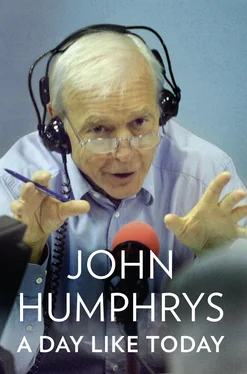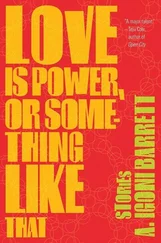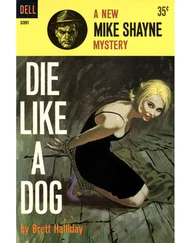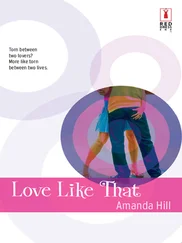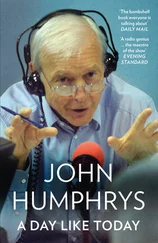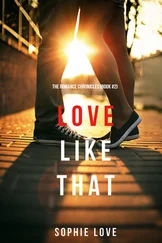I remember one torrid morning when everything that could go wrong did go wrong. The radio car broke down en route to the interviewee. The person who was meant to be operating the studio for the guest in some remote local radio station had a ropy alarm clock that had failed to go off so he never turned up. The politician who was meant to be coming into Broadcasting House had changed his mind at the last minute. The stand-by reports prepared for just such an emergency had all been used. We were on our last tape. About the only things that didn’t go wrong were the microphones in the studio, but that wasn’t much consolation because at approximately fourteen minutes to nine we had no one left to interview.
And then, just as I was planning to fall off my chair clutching my chest, thus leaving it to the other presenter to deal with the crisis and being able to blame him if he failed, my producer shrieked into my headphones. There were approximately five seconds to go before the report we were broadcasting reached its end – just time enough for him to tell me: ‘We’ve got the leader of the Indian opposition on the line and—’
And that was all he had time to say because then my microphone was live and I was broadcasting to the nation. In theory. Instead I was left to ponder not only what the name of the Indian opposition leader on the other end of the line might be but what might have happened on the subcontinent to cause my colleagues in the newsroom to set him up for a live interview. In short, I had not the faintest idea who he was nor why I was interviewing him. In the milliseconds available I ran through the options short of staging that mock heart attack.
There were only two. I could play for time and say something like: ‘Good morning sir and many thanks for joining us. May I say what an honour it is that you have given up your valuable time to join us this morning on such an auspicious day for your great country …’
A fairly uncharacteristic approach to a politician on Today I grant you, but the strength of it was that if I said it sufficiently slowly it would give my producer a vital few seconds during which he might just possibly be able to tell me why the hell I was talking to whatever-his-name-was. The weakness of the plan was that maybe nothing auspicious had happened and the mystery guest in New Delhi would decide he was dealing with a raving lunatic in London and hang up.
So I went for the opposite approach, gambled that we tend to interview foreign opposition leaders only when they are out to make trouble for their country’s government, and tried this:
‘Many thanks for joining us … it seems the government is facing a pretty serious crisis eh …?’
And then I prayed. If there was no crisis I was toast. It was a fifty-fifty gamble and luck was with me.
‘Yes indeed …’ he began. And that was enough. The opposition politician who ducks the chance of taking a swipe at his government has yet to be born and he was away. The rest of the interview was child’s play.
That sort of thing happens all the time on Today . Scarcely a day goes by without a presenter having to go off-piste for one reason or another. It comes with the territory and, obviously, any live radio presenter who can’t think on their feet would be much better getting a rather less stressful job. Rudyard Kipling wrote a pretty good job spec for Today in the first verse of his poem ‘If’:
If you can keep your head when all about you
Are losing theirs and blaming it on you;
If you can trust yourself when all men doubt you,
But make allowance for their doubting too;
If you can wait and not be tired by waiting,
Or being lied about, don’t deal in lies,
Or being hated, don’t give way to hating …
I especially like the line about not dealing in lies – can’t imagine why it puts me in mind of certain politicians – but I’m not so sure about ‘being hated’ and ‘giving way to hating’. It raises the tricky question of how much presenters should worry about the way they are perceived by the listener and takes me back to my search for a ‘radio personality’. Presumably if you are a so-called ‘shock jock’ anchorman of the sort they seem to specialise in on the other side of the Atlantic, being hated by a large chunk of your audience is an essential qualification. Perhaps not so much for a Today presenter. But is the opposite true in the more civilised world of Radio 4? Is it important to be liked by the listener? I’ve never been quite sure about that. I like to think that so long as you’re doing your job reasonably competently you will be tolerated. Well … up to a point. Sometimes you get just a tiny hint that not everyone loves you. I got more than a hint from the broadcasting critic on the Observer one Sunday morning. He wrote that if he ever found himself sitting next to me at a dinner party he would probably drive a fork through my hand.
So I turned to some fan mail to cheer myself up and there was this:
Dear John,
Some people ask me what I live for. Well I tell them that I live for the day when Mother Nature finally takes the old codger that you are out and releases the rest of us of suffering your miserable existence. For the sake of humanity, may you rest in peace, and the sooner the better. When you are finally dead heaven will descend on earth and disease, starvation, inequality and suffering will all be things of the past and there will be much merriment and rejoicing in every corner of the globe.
Thank you
It’s the polite ‘Thank you’ at the end of that letter that I cling on to. And I suppose it’s nice that someone out there thinks I have it in my power to make the world a better place – albeit by dying.
The overriding priority of BBC news is to deliver information and try to analyse what it means – but there’s no point in doing a brilliant interview if nobody is listening. Getting the balance right is never easy compared with, say, a Radio 2 show where entertainment is what matters. Someone like Terry Wogan knew exactly what buttons to press. He presented himself as a loveable old Irishman with an endless supply of easy-going charm. His gentle, self-deprecating sense of humour hid a quick wit and a sharp mind but what mattered above all else was that the audience liked him. His vast army of TOGs (‘Terry’s Old Geezers or Gals’) were invited to believe that he was just like them really: just one big happy family. The genius of his radio persona was that the audience could imagine sharing a glass of Guinness with him, enjoying a chat and probably agreeing about pretty much everything. In truth Terry was a complicated man tortured by the same demons that afflict most of us, but that’s not what the adoring listeners heard.
Of course Today presenters want to be liked – don’t we all? – but life is not like that. And certainly not in the world of journalism. One small test of my own humanity (if not necessarily likeability) came on a morning when I was scheduled to interview a senior political figure about the war in Iraq. She was in our radio car rather than in the studio so I’d had no chance of a quick chat in the green room before the interview. If I had, we’d have aborted it there and then. Within roughly thirty seconds of going live I realised she was drunk. It was 7.20 in the morning. The listeners might have thought she sounded a bit slurred but would probably have assumed she’d just got out of bed or was maybe a bit hungover. I knew her well enough to know the truth and that she was capable of saying anything. I pretended there was a problem with the radio-car connection and ended the interview very quickly.
Was that the right thing to do? Certainly not if I were being strictly faithful to the (unwritten) journalists’ code. I should have exposed her frailty and allowed the audience and her political masters to reach their own judgement. It would have almost certainly finished her career. But I liked her and respected her both as a politician and as a human being. I might have asked myself in those few seconds whether the world of politics would have been better off without her and concluded it would not – but I probably didn’t. The fact is, I acted on instinct and I agonise about it still – as I do with another similar interview for slightly different reasons.
Читать дальше
